 Chilean businessman Joel Max Marambio Rodríguez faces a deadline of August 23rd to appear before the Inspector from the Ministry of the Interior (MININT), Lieutenant Colonel Francisco Miguel Estrada Portales. If he does not appear before the time runs, the criminal proceedings initiated against him could proceed to a final judgment of guilt.
Chilean businessman Joel Max Marambio Rodríguez faces a deadline of August 23rd to appear before the Inspector from the Ministry of the Interior (MININT), Lieutenant Colonel Francisco Miguel Estrada Portales. If he does not appear before the time runs, the criminal proceedings initiated against him could proceed to a final judgment of guilt.
How does an intimate friend and protegé of the elder Castro reach this point, managing the business of a holding company that moves more than 100 million dollars a year? Why would a friend of the revolution for more than 40 years become its adversary?
There are still many unanswered questions, some of which will be answered in the course of the trial, where the Chilean businessman will apparently be tried in absentia and evidently he holds the key to the box of secrets. Marambio, age 63, a former bodyguard of ousted President Salvador Allende and former friend of Fidel Castro, is accused by the Cuban government of the crimes of bribery, acts detrimental to economic activity or employment, embezzlement, falsification of banking and commerce documents, and fraud.
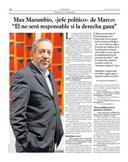 The businessman, owner of International Network Group (ING), was a partner of the Cuban state in the joint venture “Río Zaza Foods,” specializing in the production of juices, dairy products, and alcoholic beverages for the Cuban market and abroad. In late 2009, the Auditor General, a state body subordinate to the State Council, chaired by Army General Raul Castro, began investigating the leftist entrepreneur’s businesses on the island.
The businessman, owner of International Network Group (ING), was a partner of the Cuban state in the joint venture “Río Zaza Foods,” specializing in the production of juices, dairy products, and alcoholic beverages for the Cuban market and abroad. In late 2009, the Auditor General, a state body subordinate to the State Council, chaired by Army General Raul Castro, began investigating the leftist entrepreneur’s businesses on the island.
Unofficially, he was linked to a corruption scandal involving the deposed director of the Institute of Civil Aeronautics of Cuba (IACC) and Major General Rogelio Acevedo.. Max Marambio and his brother Marcel, were also partners of the IACC in the Sol y Son tourist agency. Several directors of the company were arrested, accused of paying kickbacks, misappropriating funds, and diverting resources abroad. Lucy Leal, executive director of ING, was arrested and is being investigated.
Authorities have not officially said anything about the scandal. In April, however, they acknowledged that Marambio’s companies were under investigation, when one of the managers of Rio Zaza Foods, the Chilean Roberto Baudrand, age 59, under house arrest and being subjected to interrogation, was found dead in his apartment. The Cuban autopsy, accepted by the family of the deceased, said the cause of death was respiratory failure combined with the consumption of drugs and alcohol.
Marambio, known in Cuba as “The Guaton” (the fat man) was summoned and questioned by Inspector Estrada Portales, in late April and early August. The officer is in charge of the investigation. The summonses were published by means of two MININT notices in the Official Gazette of the Republic of Cuba, the agency that discloses the laws and governmental acts on the island. To date, he has not appeared.
The Summons was issued on July 19. In it, the MININT inspector summoned the Chilean businessman to appear before him on the 29th, warning him that if he did not appear on the date indicated, an indictment would be issued on August 3. Officer Estrada Portales ordered the police agencies and State Security to search for, apprehend, and present Marambio within 20 days.
The summons expires on August 23rd. If the deadline passes without his appearance or presentation, he will be declared in default. In the case of crimes against the fundamental political or economic interests of the nation, the Cuban judicial system provides that proceedings against a defendant declared in default can proceed to a final decision.
The judicial system in Cuba offers few safeguards for defendants. The criminal case against him is in the preparatory phase, when pretrial proceedings are conducted. If Marambio returns to the island he is most likely to end up in jail, as a precautionary measure to secure his appearance. Until then, he cannot appoint a legal representative for his defense.
Everything seems to indicate that the legal route will be the means of settling accounts. The publication of the summons and indictment in the Official Gazette of the Republic of Cuba is a formal requirement. The island’s government does not intend to pursue the businessman internationally.
The aim is to declare him in default and try him in absentia. In that case, he could appoint a lawyer. He could also appear at any time and revoke the declaration. He could even void the final judgment against him and be heard in a new trial. Marambio could be a time bomb for the Castro brothers. For what he knows and for what he has been quiet about. We suspect he will not return.
Iván García y Laritza Diversent
Translated by: Tomás A.
August 23, 2010

 In recent times the postal parcels from overseas sent to Cubans who publicly express disagreement with the government are being confiscated. The Post Customs, an entity belonging to the General Customs of the Republic has been using the seizures of shipments originating from foreign countries as a filter applied to the dissidents.
In recent times the postal parcels from overseas sent to Cubans who publicly express disagreement with the government are being confiscated. The Post Customs, an entity belonging to the General Customs of the Republic has been using the seizures of shipments originating from foreign countries as a filter applied to the dissidents. If Chilean businessman Joel Max Marambio Rodríguez does not appear before the Inspector from the Ministry of Interior, Lieutenant Colonel Francisco Miguel Estrada Portales, this 23rd of August (the deadline specified in an indictment), the criminal proceedings initiated against him could proceed to a final judgment of guilt.
If Chilean businessman Joel Max Marambio Rodríguez does not appear before the Inspector from the Ministry of Interior, Lieutenant Colonel Francisco Miguel Estrada Portales, this 23rd of August (the deadline specified in an indictment), the criminal proceedings initiated against him could proceed to a final judgment of guilt.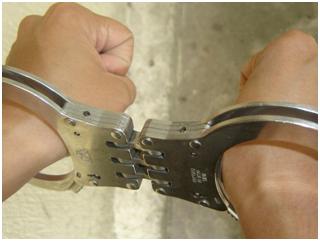 After his speech before the National Assembly, in which Raul Castro warned that “there will be no impunity for the enemies of the homeland,” the repressive and intimidating actions against opponents have intensified.
After his speech before the National Assembly, in which Raul Castro warned that “there will be no impunity for the enemies of the homeland,” the repressive and intimidating actions against opponents have intensified.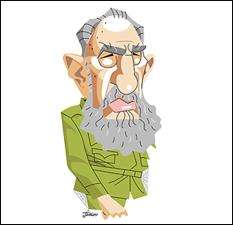
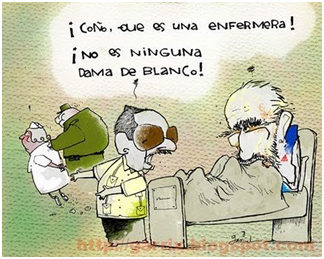
 Minister of Finances and Prices
Minister of Finances and Prices Fidel Castro in Parliament, for the first time in four years
Fidel Castro in Parliament, for the first time in four years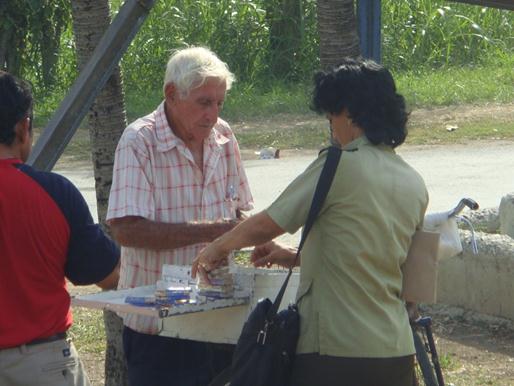
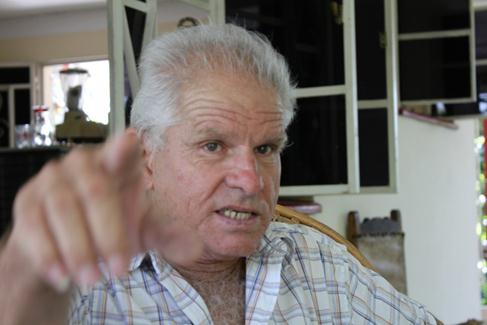 The Minister of Finances and Prices, Lina Olinda Pedraza Rodriguez, ordered the execution of a process of confiscation against Teófilo Roberto López Licor, 66, based on Legal Decree 149 “on the confiscation of goods and accumulations made through improper enrichment,” known as the Law Against the Newly Rich and its regulation, Decree No. 187, both from 1994.
The Minister of Finances and Prices, Lina Olinda Pedraza Rodriguez, ordered the execution of a process of confiscation against Teófilo Roberto López Licor, 66, based on Legal Decree 149 “on the confiscation of goods and accumulations made through improper enrichment,” known as the Law Against the Newly Rich and its regulation, Decree No. 187, both from 1994. On the 15th of July the second chamber of Civil and Administrative Law of the Provincial Court of the City of Havana summoned the incumbent Minister of Justice, María Esther Reus González, in the matter of the lawsuit filed by the Cuban Law Association (CLA)for denying their request for certification, a step that is indispensable for the legalisation of this organisation of independent lawyers.
On the 15th of July the second chamber of Civil and Administrative Law of the Provincial Court of the City of Havana summoned the incumbent Minister of Justice, María Esther Reus González, in the matter of the lawsuit filed by the Cuban Law Association (CLA)for denying their request for certification, a step that is indispensable for the legalisation of this organisation of independent lawyers.
 Postal and Shipping Customs, part of General Customs of the Republic (AGR), imposed an administrative penalty against me, through Confiscation Order No. 978, issued on June 8, 2010, for a shipment sent from the United States of America.
Postal and Shipping Customs, part of General Customs of the Republic (AGR), imposed an administrative penalty against me, through Confiscation Order No. 978, issued on June 8, 2010, for a shipment sent from the United States of America.
 To speak of liberation — in this case of the release of prisoners — through a third-party also has advantages. Mainly because neither the Catholic Church in Cuba nor the representative of the Spanish state have the power to say anything about the legal means for implementing it.
To speak of liberation — in this case of the release of prisoners — through a third-party also has advantages. Mainly because neither the Catholic Church in Cuba nor the representative of the Spanish state have the power to say anything about the legal means for implementing it.